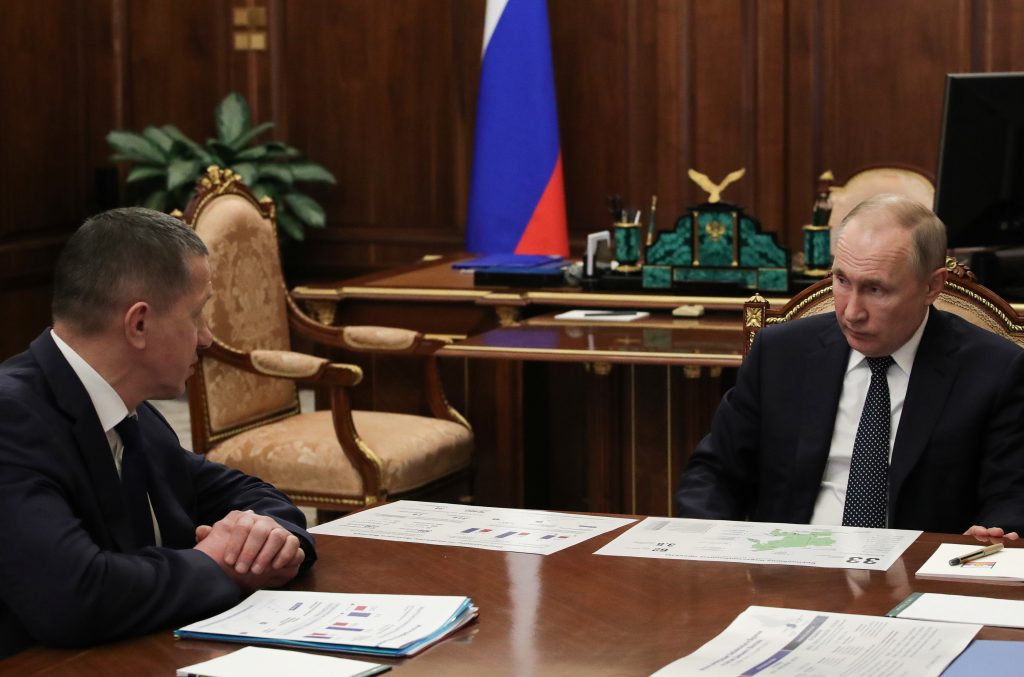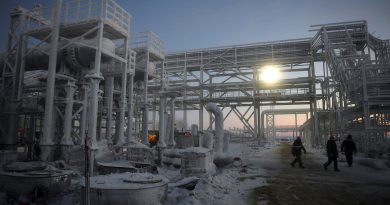Climate change is making the Arctic more hospitable, says Russian nuclear icebreaker captain

Skryabin on the 23rd September met with the President in connection with the official Day of nuclear industry employees. In the Kremlin hall were also another 29 representatives of the Russian nuclear power industry. But it was Aleksandr Skryabin that was given most attention, judging from the transcript published by the Kremlin.
Skryabin is captain of Vaigach, the nuclear-powered icebreaker that is designed for sailing in shallow waters. Over the years, the powerful vessel has crisscrossed Russian far northern waters, including the Gulf of Ob where Russia today is unfolding an unprecedented Arctic industrialization.
Feeling the change
According to the icebreaker captain, the future looks bright for shipping and industrial activities in the Arctic. It is the warmer climate that is changing the working conditions, he explained to the President.
“As shown from our working experience, the harsh Arctic has over the last years been very friendly towards our industry and, as I see it, adheres with great hospitality towards state corporation Rosatom.”
He described how Rosatom soon will be able to operate along the whole Northern Sea Route for 9-10 months per year, up from the current 7-8 months.
“Window of opportunity”
“I believe that we should take advantage of this, because the stronger is Rosatom, the stronger is Russia,” Skryabin underlined.
Putin listened attentively. “Are you really feeling the climatic changes?” he inquired.
“Yes, clearly,” Skryabin responded and added that “there is climate change [but] researchers might think that it is part of a cycle, a spiral, a kind periodicity.”
Putin interrupted him and underlined that “this is a window of opportunity today.”

Big plans
The Russian president has for years been actively engaged in Arctic policy issues and made the development of the Northern Sea Route a top priority in his 5-year plan announced in 2018. Putin insists that shipments on the Arctic route must reach 80 million tons per year by 2024.
That target now appears impossible to reach and representatives of Rosatom recently made clear that only about 60 million tons of goods will be shipped in 2024, but that the 80 million goal will be reached in 2025.
Shipments on the far northern route has increased explosively over the last years. In 2017, a total of 10,7 million tons were transported on the route. In 2018, the volume increased to 20,18 million tons and in 2019 to 31,5 million.
Growth has continued into 2020. In the first half of the year, goods volumes on the route amounted to 14,5 million tons, an increase of 1,1 percent compared with the same period in 2019.
State nuclear power company Rosatom is responsible for the development of the Northern Sea Route.
Dramatic warming
Sea-ice conditions in the area has changed dramatically over the last decades. In 2020, two tankers sailed across the eastern part of the route already in May, and in July the route was completely ice-free.
The major changes come as temperatures in the region have reached an unprecedented high. This summer, the average Russian Arctic temperatures were as much as 3-5 degrees Celsius higher than normal.
Since measurements started in year 1881, the temperatures in the Arctic have never been this high, according to Russia’s meteorological service Roshydromet.
The trend is leading to massive melting of sea-ice and 2020 marks the second lowest level on record, the National Snow and Ice Date Center informs.
Related stories from around the North:
Canada: Climate change creating vast new glacial lakes, with risk of ‘gargantuan’ floods, researcher says, The Canadian Press
Greenland: A big chunk of Greenland’s ice cap breaks off as Arctic shifts to new climate regime, The Associated Press
Sweden: Ten billion kroner for Sweden’s upcoming climate budget, Radio Sweden
Norway: Norway’s Svalbard experienced hottest summer on record, The Independent Barents Observer



